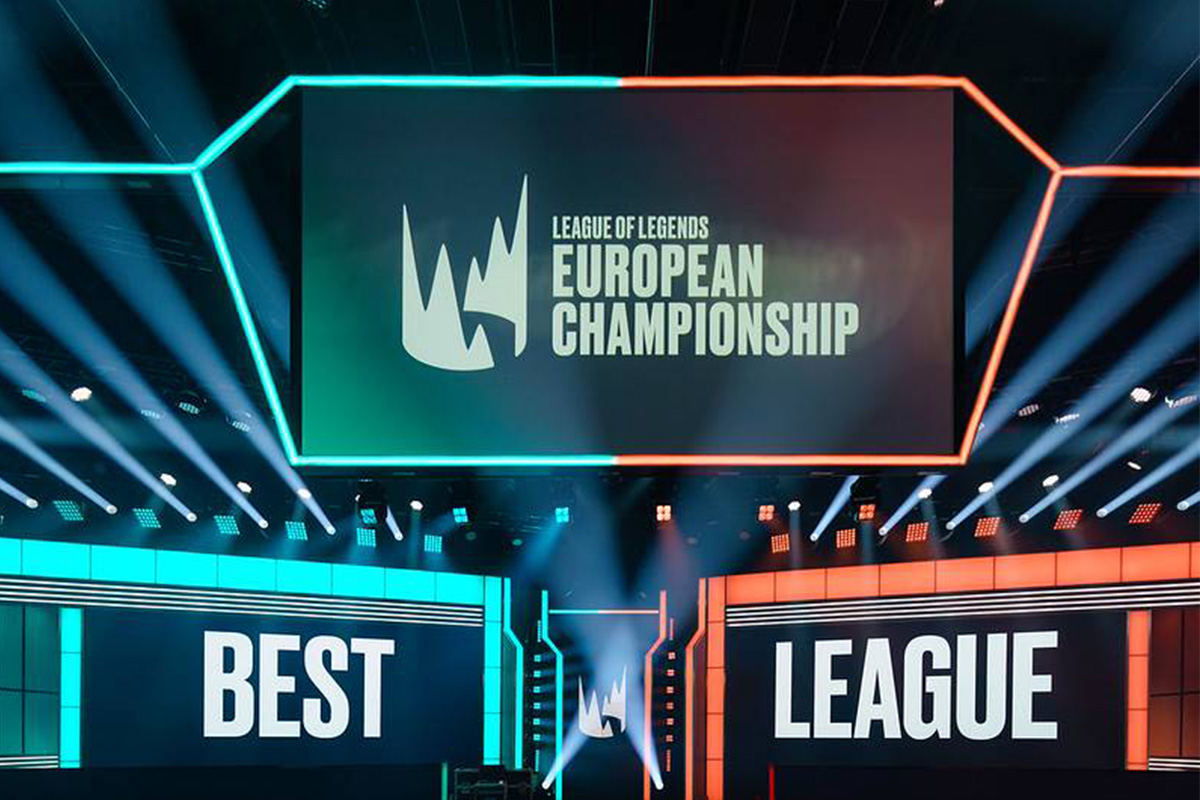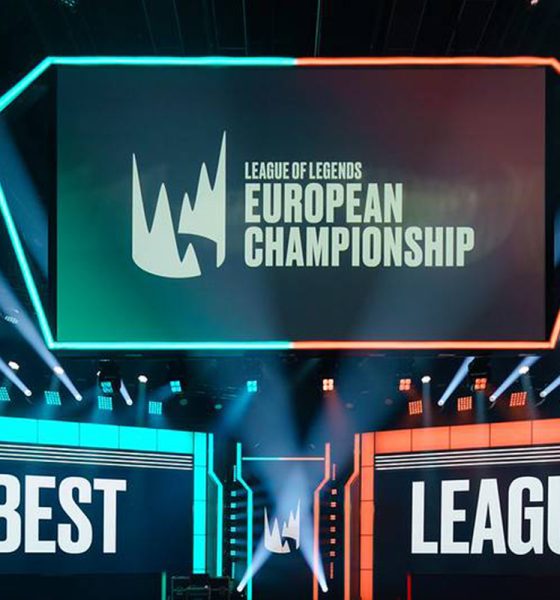

Compliance Updates
LEC Introduces Sporting Financial Regulations
To support the long-term financial stability and competitive balance of the LEC, the league is going to introduce new financial regulations – known as Sporting Financial Regulations (SFR) – for the start of the 2024 LoL Esports Season.
The LEC SFR will encourage teams to maintain the total sum of its five highest-paid player salaries below a certain threshold, with teams exceeding the threshold having to pay an excess fee (SFR Fee).
In doing so, the LEC seeks to create a financially sustainable environment for its pro players, partnered teams, and the league itself, allowing all parties to grow at a healthy and scalable pace, and protect the ecosystem from unsustainable spending practices. In addition, the framework will support the league by creating a better competitive balance and more engaging competition, further enhancing the experience for players and fans.
“In the current economic climate, we are dedicated more than ever to creating a sustainable future for our players, teams, and the LoL Esports ecosystem in EMEA as a whole. The LEC SFR, which will come into effect from the beginning of the 2024 Season, is one way in which we’re continuing to work towards our goal of long-term financial sustainability. By doing this, we aim to encourage teams to operate more sustainable businesses to provide job security for players and ensure we serve our fans for decades to come,” said Maximilian Peter Schmidt, Director of League of Legends Esports EMEA.
SFR will encourage each team to maintain the total sum of salaries (known as SFR Spend) paid to the top five highest-paid players in a team within a certain range. The range includes both an upper spending threshold (SFR Threshold) and a lower spending threshold (SFR Floor), with the lower spending threshold amounting to 50% of the SFR Threshold. Meanwhile, the SFR Threshold is calculated based on a number of considerations, including LEC player salaries, League Revenue Pool of the current and forecasted years, team financial data – such as revenue and expenses – and other market indicators. Teams that exceed the SFR Threshold will be imposed with an SFR Fee.
An exception will be made to teams if a player enters into a contract with the team either during or before the end of the 2023 LEC Season Finals. In this instance, the SFR Spend will be reduced by one-fifth of the SFR Threshold or the actual salary amount; whichever is lower.
The policy will be introduced starting from the 2024 LEC Global Contract Start Date (21 November 2023), with the first cycle running until the 2024 LEC Global Contract End Date (18 November 2024).
Compliance Updates
Cyprus National Betting Authority Warns Public About Illegal Online Gambling and Misinformation

The National Betting Authority (NBA) has urged the public to exercise caution and to verify the legitimacy of betting service providers exclusively through the official website: www.nba.gov.cy.
In recent weeks, the NBA has observed a rise in misinformation and the spread of false claims regarding the legality of certain websites offering online gambling services. Of particular concern is the sharp increase in advertisements for illegal online casinos on popular social media platforms. These operators have not obtained a licence to operate within the Republic of Cyprus. Equally troubling is the unauthorised use of images and videos of well-known individuals in such advertisements, without their consent.
The public is reminded that, under Cyprus’ gambling legislation, the operation of online casinos is strictly prohibited. Participation in these illegal activities poses serious risks, including threats to personal and banking data security, as well as potential harm to players’ financial stability and mental well-being.
According to Article 79 of the Betting Law 37(I)/2019:
• Players participating in illegal gambling or online casinos face up to 1 year in prison and/or a fine of up to €50,000.
• Individuals or companies providing illegal gambling services face up to 5 years in prison and/or a fine of up to €300,000.
The NBA urges the public to verify information received through websites, apps, social media posts, or other advertisements before engaging with any gambling services. The official list of licensed online betting providers is available on the NBA’s website.
The post Cyprus National Betting Authority Warns Public About Illegal Online Gambling and Misinformation appeared first on European Gaming Industry News.
Compliance Updates
CT Interactive Expands Presence with MGA-certified Game Portfolio

CT Interactive has announced the certification of 20 new games under the Malta Gaming Authority (MGA) regulatory framework, marking an important step in its ongoing expansion across regulated European markets. This certification empowers CT Interactive to offer its premium gaming portfolio to licensed operators throughout Malta and beyond.
The newly certified titles include several standout Buy Bonus games such as Doctor Winstein Buy Bonus, Duck of Luck Buy Bonus, Fruits & Sweets Buy Bonus, Hyper Cuber Buy Bonus, Nanook the White Ghost Buy Bonus, 100x Crypto Magic, 100x Fresh and 100x Coffee Hot. These games have demonstrated strong performance internationally and now bring their dynamic bonus features to an even wider audience.
A highlight of the new portfolio is Lucky Clover 10, a refreshed edition of CT Interactive’s most popular slot, Lucky Clover. Featuring vintage-inspired graphics and nostalgic gameplay elements, Lucky Clover 10 delivers a captivating experience that combines classic charm with modern vision.
“Providing new game titles certified under the MGA framework marks a key step in our regional growth strategy. This market demands high-quality, fully compliant content. Our portfolio of Buy Bonus games and refreshed classics like Lucky Clover 10 are ideally suited to meet the local preferences and deliver premium gaming experiences,” said Martin Ivanov, COO of CT Interactive.
This certification reinforces CT Interactive’s position as a trusted provider of regulation-ready gaming content, enabling operators to offer a diverse and engaging portfolio fully aligned with MGA requirements.
The post CT Interactive Expands Presence with MGA-certified Game Portfolio appeared first on European Gaming Industry News.
Arizona Department of Gaming
Arizona Department of Gaming Launches First-Ever Statewide Campaign to Empower and Protect Consumers

The Arizona Department of Gaming has launched its first-ever statewide Public Education Campaign focused on protecting consumers, promoting public awareness, and reducing the harms associated with unregulated gambling. This is a significant milestone in the Department’s ongoing efforts to protect consumers and ensure a safe and responsible gaming environment.
Arizona offers a variety of legal, regulated gaming options throughout the state, including tribal casinos, event wagering, fantasy sports, and parimutuel wagering. For 30 years, ADG has safeguarded the integrity of Arizona’s gaming industry through rigorous oversight, licensing, and enforcement in accordance with the Tribal-State Gaming Compacts. This new campaign expands on that mission by educating Arizonans on how to avoid illegal gambling and access support services when needed.
The campaign is designed to inform and empower the public by emphasizing the risks of engaging with unlicensed operators and providing them with tools to identify legal, regulated options. It aims to reduce consumer vulnerability, prevent exploitation, and help individuals make informed decisions if they choose to participate in gaming activities.
The campaign kicks off with a series of Public Service Announcements (PSAs), developed in collaboration with the Arizona Media Association, which will be aired across TV, radio, print, and digital platforms. Available in both English and Spanish, the PSAs will:
• Educate the public on how to identify legal, regulated gaming operators in Arizona
• Emphasize consumer protection and the safeguards provided by regulated gaming environments
• Highlight the role regulated gaming plays in supporting Arizona communities and essential services
• Promote the 1-800-NEXT STEP helpline, which connects individuals to confidential, 24/7 support for problem gambling.
To complement the PSAs, ADG has launched the Check Your Bet webpage, which serves as a centralized resource to verify regulated gaming and access consumer protection tools. The webpage includes:
• A searchable list and interactive map of authorized Tribal Casinos in Arizona
• A searchable list and interactive map of licensed Event Wagering and Fantasy Sports Operators and their retail locations
• Information on Advanced Deposit Wagering Providers (ADWPs), Off-Track Betting (OTB) locations, and permitted horse racing tracks in Arizona
• How to access the Division of Problem Gambling’s Helpline, a confidential Problem Gambling Self-Screening Quiz, and additional supportive resources
• How to request Self-Exclusion, a voluntary program to prohibit oneself from Tribal Casinos and Event Wagering and Fantasy Sports Contests
• Guidance on submitting tips about suspected illegal gambling to the Department and filing consumer complaints with the Arizona Attorney General’s Office.
“We are proud to celebrate 30 years of providing world-class gaming regulation and consumer protection. This campaign is about empowering Arizonans who choose to participate in gaming with the knowledge to make informed, responsible decisions. As illegal and unregulated options on the market increase, the Check Your Bet webpage serves as a key resource for the public to verify licensed operators and access support. By directing viewers from our PSAs to this tool, we’re helping ensure people not only play safely, but also know where to turn if they or a loved one are struggling with problem gambling,” said Jackie Johnson, Director of the Arizona Department of Gaming.
Since its founding in 1995, the Department has worked tirelessly to ensure that Arizona’s gaming industry operates with transparency, integrity, and responsibility. The campaign will run through the end of March 2026 and reflects ADG’s commitment to a safe, transparent, and well-regulated gaming landscape in Arizona.
The post Arizona Department of Gaming Launches First-Ever Statewide Campaign to Empower and Protect Consumers appeared first on Gaming and Gambling Industry in the Americas.
-

 gaming3 years ago
gaming3 years agoODIN by 4Players: Immersive, state-of-the-art in-game audio launches into the next generation of gaming
-
EEG iGaming Directory8 years ago
iSoftBet continues to grow with new release Forest Mania
-
News7 years ago
Softbroke collaborates with Asia Live Tech for the expansion of the service line in the igaming market
-
News7 years ago
Super Bowl LIII: NFL Fans Can Bet on the #1 Sportsbook Review Site Betting-Super-Bowl.com, Providing Free Unbiased and Trusted News, Picks and Predictions
-
iGaming Industry8 years ago
Rick Meitzler appointed to the Indian Gaming Magazine Advisory Board for 2018
-
News7 years ago
REVEALED: Top eSports players set to earn $3.2 million in 2019
-
iGaming Industry8 years ago
French Senator raises Loot Boxes to France’s Gambling Regulator
-
News7 years ago
Exclusive Interview with Miklos Handa (Founder of the email marketing solutions, “MailMike.net”), speaker at Vienna International Gaming Expo 2018











